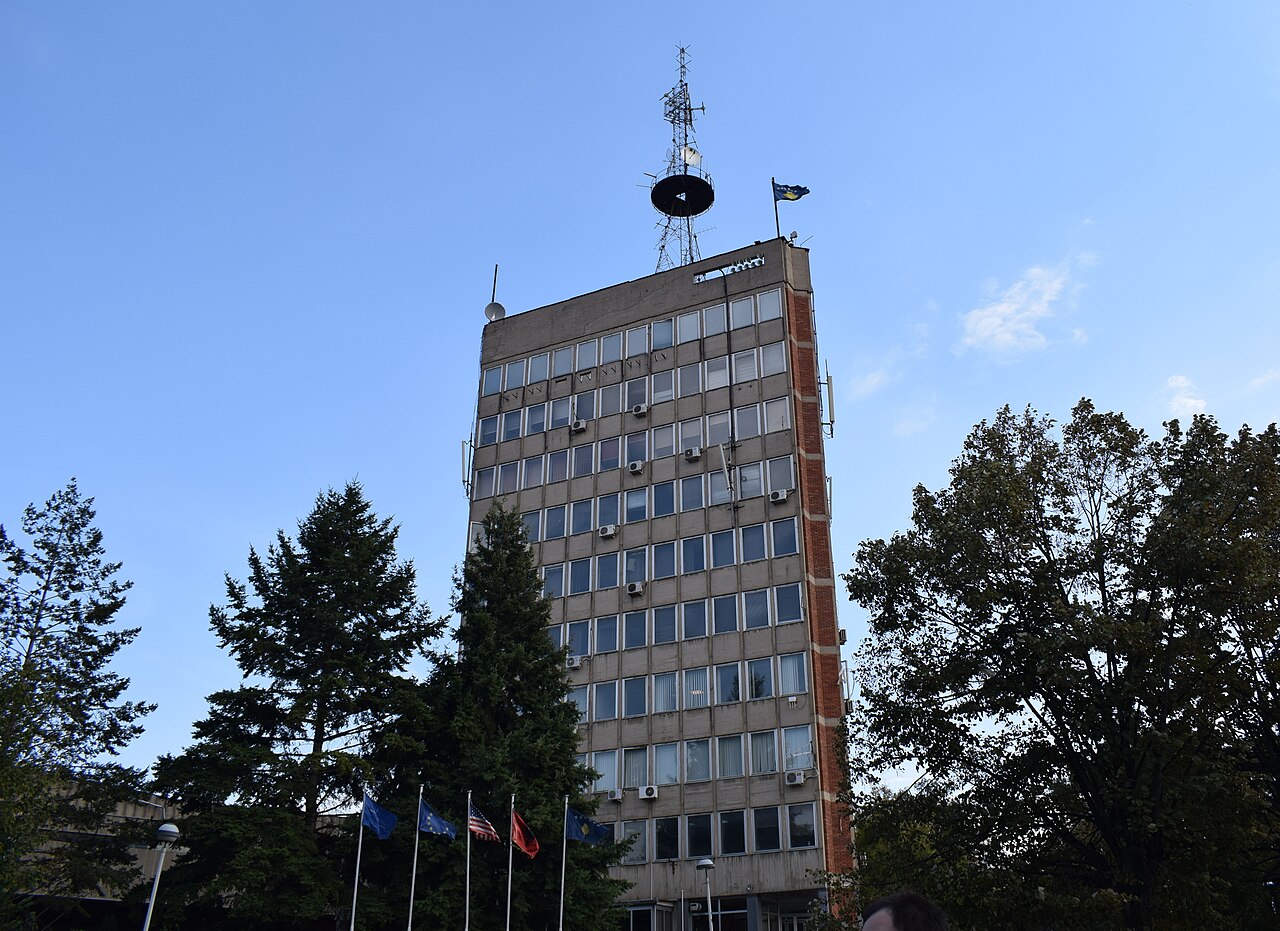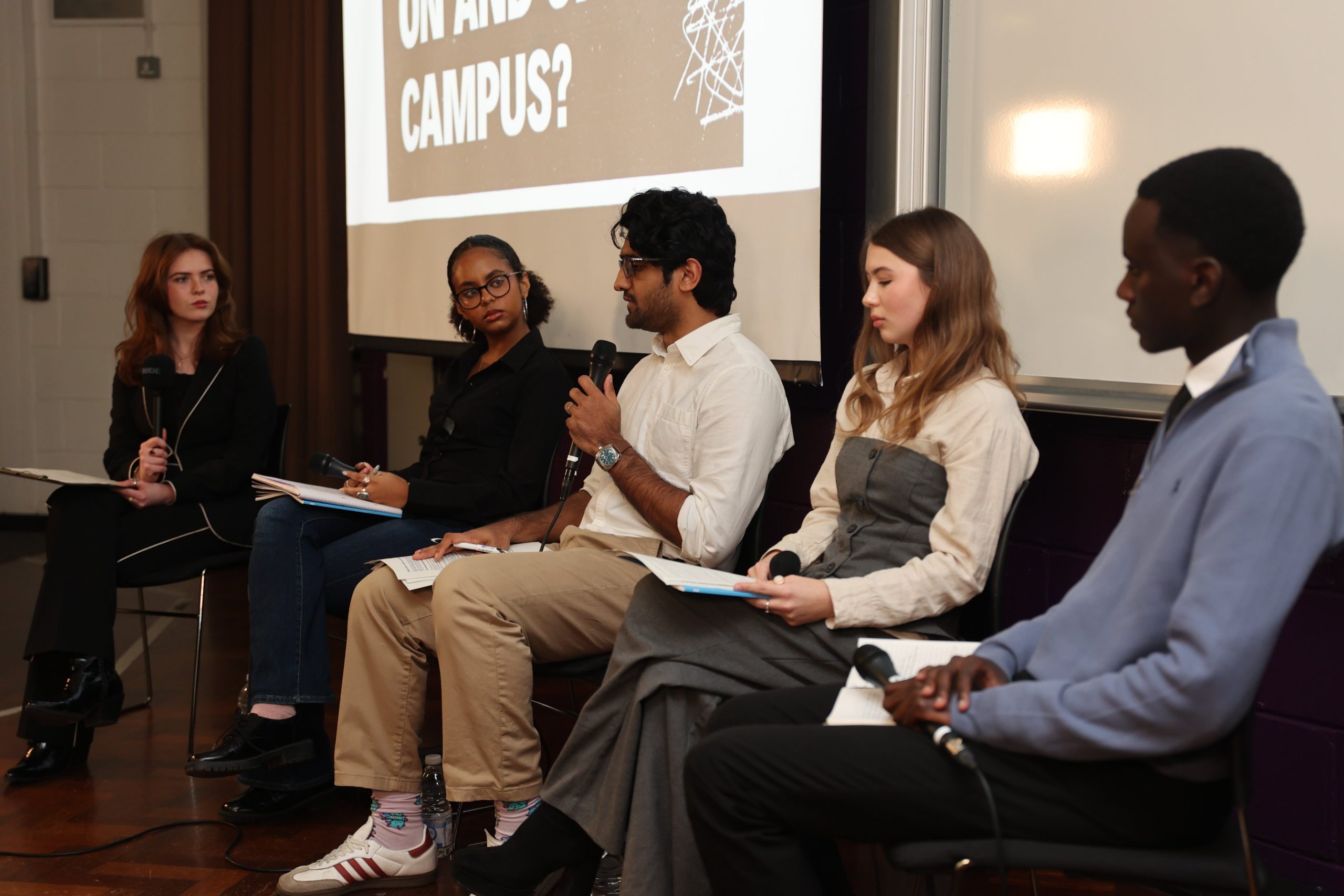A version of this article was originally published in the British Journalism Review.
Let me tell you about four brave journalists. One morning last May, Farid Mehralizada was arrested by masked police. The Azerbaijani financial reporter later described how the officers put a bag over his head, handcuffed him and forced him into a police car. They accompanied him home, where they searched for incriminating evidence as his pregnant wife watched. He was charged with smuggling and money laundering. Mehralizada has been in prison ever since and missed the birth of the child his wife was carrying. His only crime was exposing Azerbaijan’s overreliance on its reserves of oil and gas. “90% of Azerbaijan’s exports and 50% of its budget revenues depend on the oil and gas sector, which poses significant risks for the country,” he told a Baku court in April. Earlier this month, Mehralizada was convicted and sentenced to nine years in prison following a trial his employer called a “sham”.
Belarusian journalist Ihar Losik was detained in June 2020 in advance of the rigged elections in his country and accused of “organising mass riots” and “incitement to hatred”. In December 2021, he was sentenced to 15 years in prison. Losik was transferred to a labour camp in June 2022 and added to a terrorist watch list. He has since used hunger strikes to protest against his detention but is currently incommunicado.
Ukrainian Vladyslav Yesypenko left Crimea after the Russian annexation of the peninsula in 2014, but he kept returning to his homeland to report on Vladimir Putin’s illegal occupation. He was arrested in March 2021 on suspicion of collecting information for Ukrainian intelligence and later charged with the “possession and transport of explosives”. In February 2022, he was sentenced to six years in prison. He was finally released on 22 June 2025, after more than four years of detention and separation from his family.
In November 2024, Russian freelancer Nika Novak was sentenced to four years in prison on charges of “confidential collaboration” with a foreign organisation. Earlier this year, she was placed in a detention centre usually reserved for prisoners at risk of escape, violent inmates or members of extremist organisations. At the end of March, the court of appeal in Novosibirsk in the far east of Russia upheld her sentence, fined her 500,000 roubles ($6,380) and made her pay prosecution witnesses’ expenses.
What these journalists have in common – apart from their courage and determination to report on authoritarian abuses – is that they all worked for the US Congress-funded broadcaster Radio Free Europe/Radio Liberty (RFE/RL) before their detention.
In February, Richard Grenell, presidential envoy for special missions, posted on X [now deleted] that “state-owned” broadcasters such as RFE/RL were “a relic of the past”. Elon Musk, the billionaire former head of Donald Trump’s Department of Government Efficiency (DOGE) responded: “Yes, shut them down. Europe is free now (not counting stifling bureaucracy). Nobody listens to them anymore. It’s just radical left crazy people talking to themselves while torching $1B/year of US taxpayer money.”
It’s hard to imagine a more ill-informed statement about the state of liberty in eastern Europe. It would be laughable to describe Mehralizada, Losik, Yesypenko and Novak as “radical left crazy people”, if the consequences of Musk’s words weren’t so catastrophic.
On 15 March, barely a month after Grenell and Musk’s statements, RFE/RL was informed by the US Agency for Global Media (USAGM) that its grant from Congress had been terminated. Lawyers acting for the broadcaster immediately challenged the decision to terminate the funding and Judge Royce Lamberth of the US District Court for the District of Columbia granted the application. He concluded that closure would cause “irreparable harm” and added “in keeping with Congress’s longstanding determination… the continued operation of RFE/RL is in the public interest”.
Despite the ruling, USAGM at first refused to release funds for April, forcing RFE/RL to furlough staff to keep the organisation afloat. Then, on 29 April, Judge Lamberth concluded that USAGM’s refusal to pay the grant on the same terms as the previous month was “arbitrary and capricious”. He rejected USAGM’s argument that it could withhold the funds until a new grant agreement had been signed with amended working conditions. The judge concluded that the actions of the agency could “threaten the very existence” of RFE/RL.
RFE/RL president and CEO Stephen Capus said the ruling meant his journalists could “continue doing their jobs holding dictators and despots accountable”. The organisation will continue to fight for funding to be restored in full.
Meanwhile, at the time of going to press, the future of its 1,300 journalists and support staff hangs in the balance. The fate of its imprisoned staff is even more precarious.
One peculiar and surreal aspect to the Trump administration’s attacks on RFE/RL is that the organisation was traditionally seen by the “radical left” as a propaganda arm of the US government, along with its sister broadcaster Voice of America (VOA), which also faces closure. The soft-power value of these institutions seems lost on those surrounding the US president.
It was not lost on Ronald Reagan. As a young actor in the 1950s, the future Cold War warrior recorded an advert for RFE that recognised its ideological worth in the battle against communism. “This station daily pierces the Iron Curtain with the truth, answering the lies of the Kremlin and bringing a message of hope to millions trapped behind the Iron Curtain,” he said.
It is perhaps not surprising that Musk has conflated the various Congress-funded broadcasters as they are often mixed up in the public imagination. But they have very specific origins and functions. VOA was founded during the Second World War to counter the fascist ideology of Nazi Germany, while RFE was a post-war response to communist propaganda in Soviet-occupied countries. RL had the specific task of broadcasting inside Russia. VOA was designed, as its name suggests, to speak for the US government and the American people, whereas RFE/RL began by representing dissident views from within Soviet-occupied countries. As a mark of its significant role during the Cold War, the Czech president Vaclav Havel, himself a former dissident, invited RFE/RL to move its headquarters from Munich to Prague in 1995.
RFE/RL now operates in 27 languages across 23 countries, with specialist services in Iran and Afghanistan. In recent years, it has made the case for independent journalism in the countries where it operates, part of the reason it is so despised by Putin and other authoritarian leaders across Europe, Central Asia and the Middle East. In February 2024, it was designated an “undesirable organisation” in Russia, forcing many of its journalists to move into exile and operate remotely from Lithuania and Latvia. In April this year, the US government shut off a satellite that transmitted its Russian-language service into Russia.
The move against RFE/RL came as a surprise to the organisation’s management, who had no inkling that it was a potential target. No one within the organisation was consulted and no warning given.
Nicola Careem, vice president and editor in chief of RFE/RL, said: “In some of the places we work, we’re not just one voice among many – we are the media. When every other outlet has been silenced, taken over or driven out, our journalists stay. They keep reporting, often at great personal risk, just to make sure the truth still gets through. I’ve seen what that means on the ground. For millions of people, we’re their only source of trusted news. If RFE/RL disappears, so does independent journalism in those countries. That’s the reality. There’s no safety net – except us.”
One tragedy among many in this miserable saga is that RFE/RL had begun to find a new role for itself in the Putin era. This was especially true after the full-scale invasion of Ukraine. Its Russian-language channels reached a peak of 400 million views on YouTube in February 2022 as the invasion began. This is why the recent blocking of the Russian-language satellite takes on such a sinister edge.
When I spoke to Patrick Boehler, head of digital strategy for RFE/RL, in the summer of 2022 for Index on Censorship, he was full of optimism: “We have fantastic teams serving Russia. And I think it’s really one of those moments where you see our journalists living up to the task and the challenge that they face. And it’s really inspiring.” That optimism has been torpedoed by the news from Washington.
The reality is that in parts of Central Asia, where independent journalists find it difficult to operate, RFE/RL is there to provide an important check on Russian and Chinese misinformation. As a result, its affiliates have been periodically blocked across the region.
Careem said: “Make no mistake – we’re in the middle of an information war. Authoritarian regimes in Russia, China and Iran are standing by, ready to take over any space RFE/RL is forced to leave behind. They will spend billions to capture our audiences, flood the region with propaganda, and fuel instability. This is not the moment for the free world to look away, or to leave the field open. If we step back, they step in. It’s that simple.”
But the picture is complicated. The organisation has not been without its critics, even before the arrival of Trump in the White House. Journalists in the region already expressed their concern in 2023 when the broadcaster announced its Kazakh service (Radio Azattyk) would move away from broadcasting in Russian. The US organisation argued that a combined service operating across Kazakhstan, Kyrgyzstan, Uzbekistan, Tajikistan and Turkmenistan would pool resources and produce better journalism. Local journalists, some of whom had been critics of REF/RL for years, were not convinced.
Asem Tokayeva, who worked at Azattyk for 14 years, has been calling for reform of the organisation since she left in 2017. Speaking to The Times of Central Asia in April in response to the grant cut, she said: “The organisation has long had an opaque management system and a culture of mutual protection. Real control over the content and personnel decisions rests with mid-level managers, vice presidents, and regional directors, who actively resist reforms. The leadership shields its own from accountability, allowing the system to remain unchanged.”
RFE/RL’s critics in Washington are not motivated by these criticisms and are unlikely even to be aware of them. The drama playing itself out in the US District Court for the District of Columbia is existential. On 22 April, Judge Lamberth ruled that the decision to require VOA to stop broadcasting was illegal. He ordered the administration to restore VOA and two other independent networks operated by the USAGM – Radio Free Asia and Middle East Broadcasting Networks. He did not make the same order for RFE/RL.
The uncertain situation at RFE/RL raises unsettling questions for the future of independent journalism across Central and Eastern Europe, not least for the exiled journalists who could find themselves stranded and jobless in Prague or the Baltic countries.
As the future of the broadcaster hangs in the balance, the Czech government has led the way by pledging to support RFE/RL’s continued presence in Prague. Prime minister Petr Fiala told the Financial Times in March: “We will do everything that we can to give them the chance to continue in this very important role.” He also emphasised the historical significance of the organisation. ‘‘I know what it meant for me in communist times,” he said. At the same time, Czech foreign minister Jan Lipavský celebrated its relevance to the present global situation on X: “Radio Free Europe is one of the few credible sources in dictatorships like Iran, Belarus, and Afghanistan”.
The Czech government has led calls for the European Union to step in to fill the hole left by USAGM. That is likely to face resistance from the so-called “hybrid democracies” of Hungary and Slovakia, where the leaderships are sympathetic to Russia and independent media are under attack. The UK government has so far not commented on developments, but Index on Censorship has called on the Foreign Office to make representations on behalf of the stranded journalists.
Could there also be a role for the BBC World Service, a historical competitor? There are certainly parts of Eastern Europe and Central Asia where the BBC’s coverage could benefit from the expertise of RFE/RL journalists. Careem is exploring all possibilities: “We’re facing real financial and political uncertainty, but one thing is clear: anyone who values democracy, press freedom, and truthful information has a stake in ensuring RFE/RL survives. We’ve been deeply gratified by the support from our European partners as we work through a range of solutions that would allow us to continue this critical work.”
Meanwhile, the exiled journalists at RFE find themselves in the bizarre position of being double dissidents: in their home countries and now, effectively, in the USA too.
To see Index’s coverage of these broadcasting institutions, click here.






